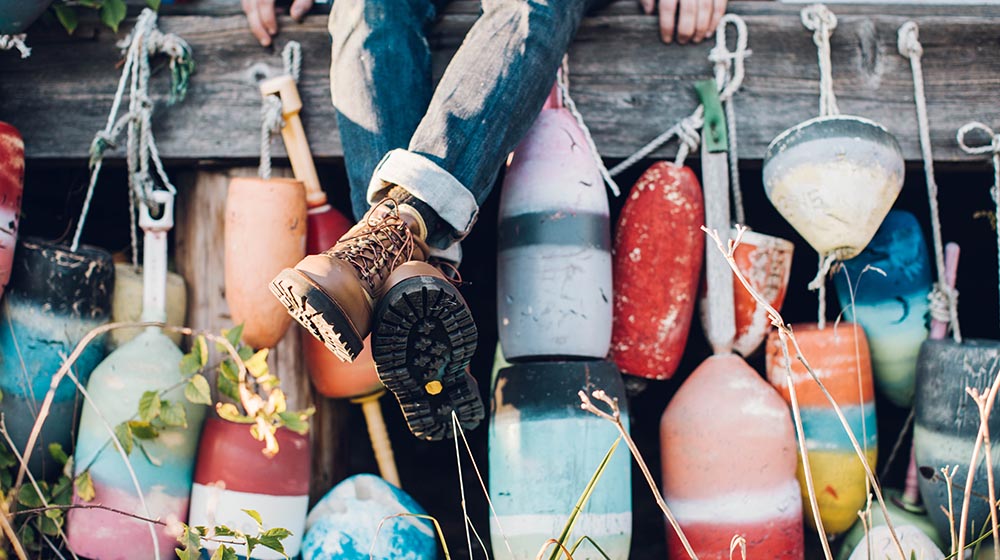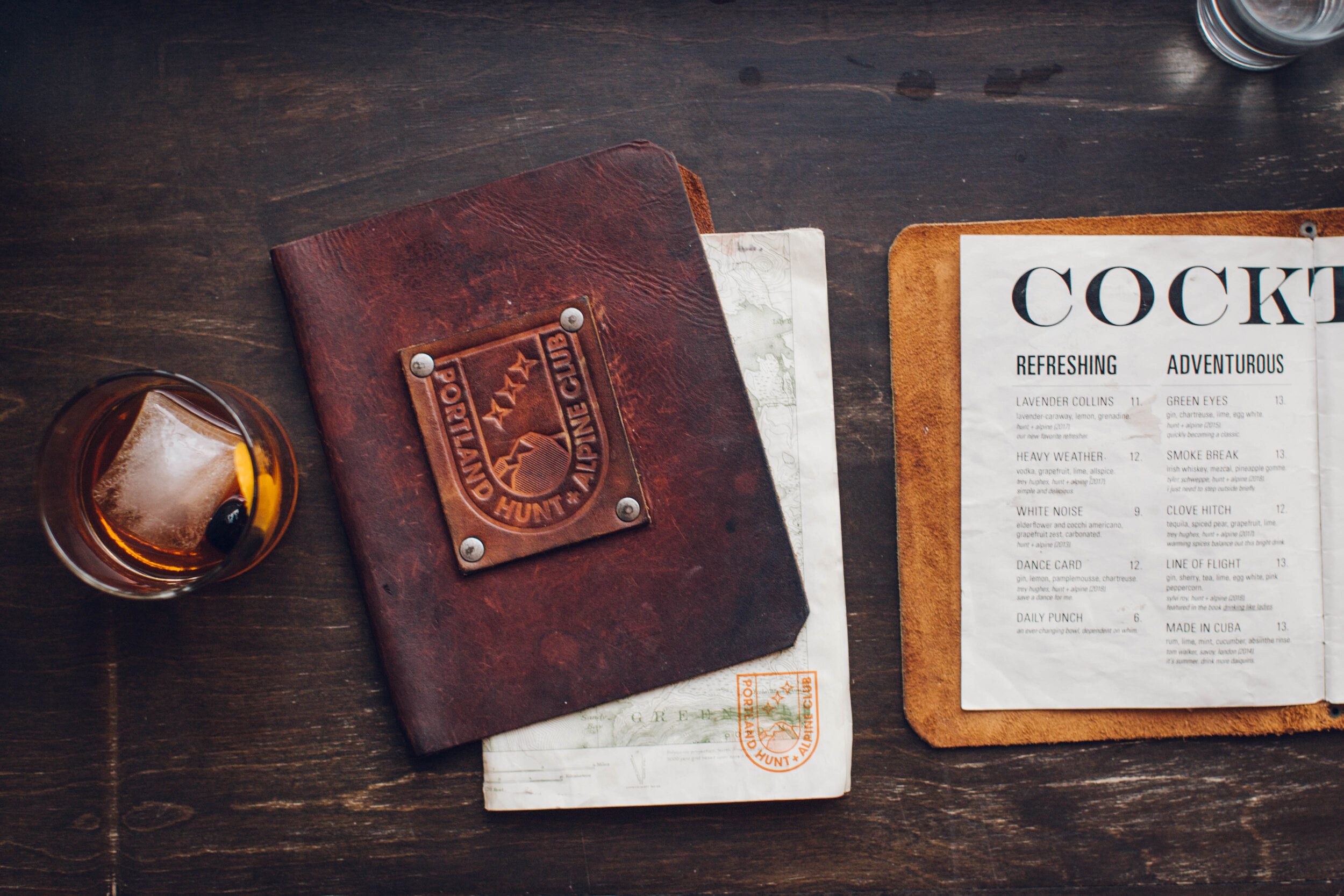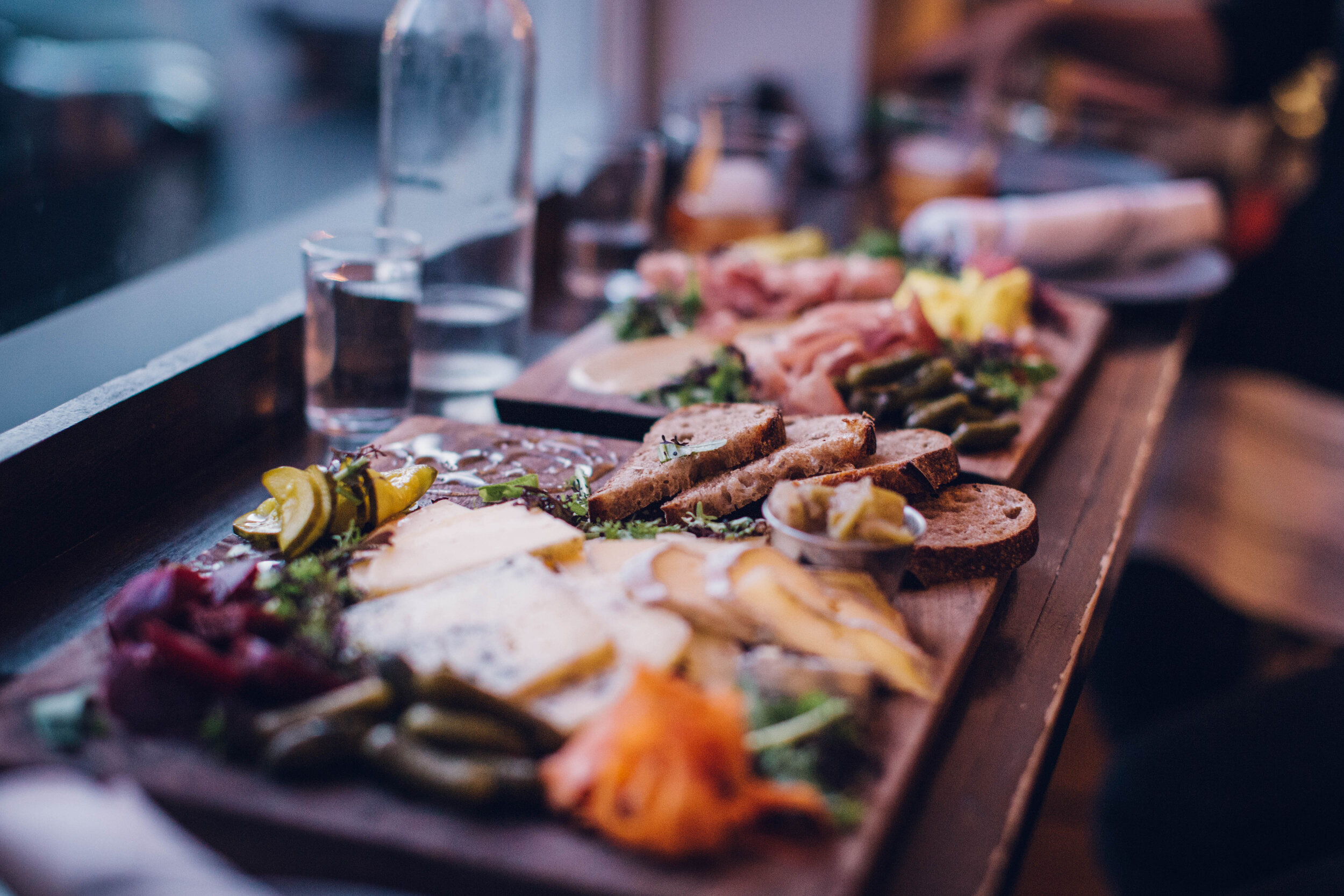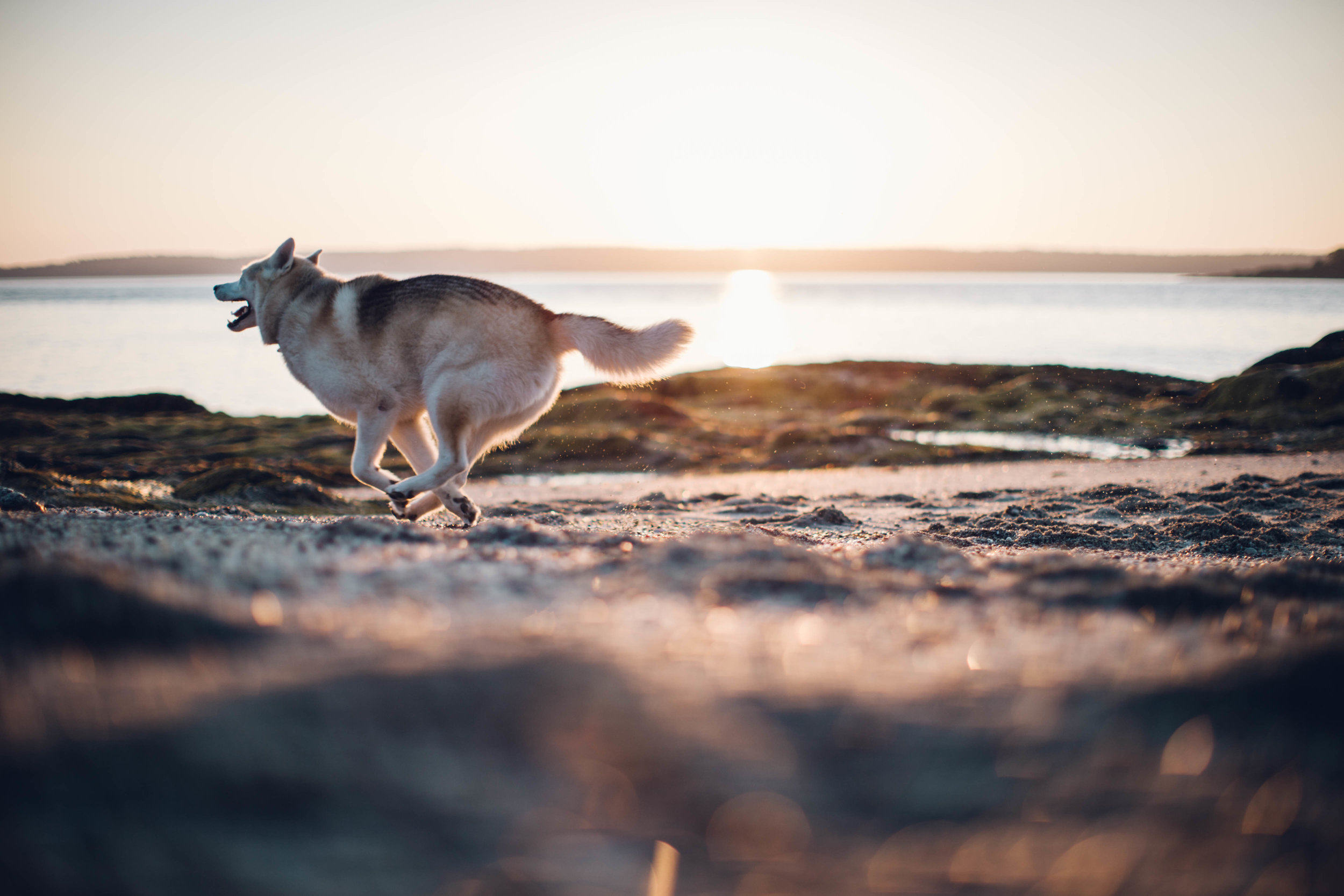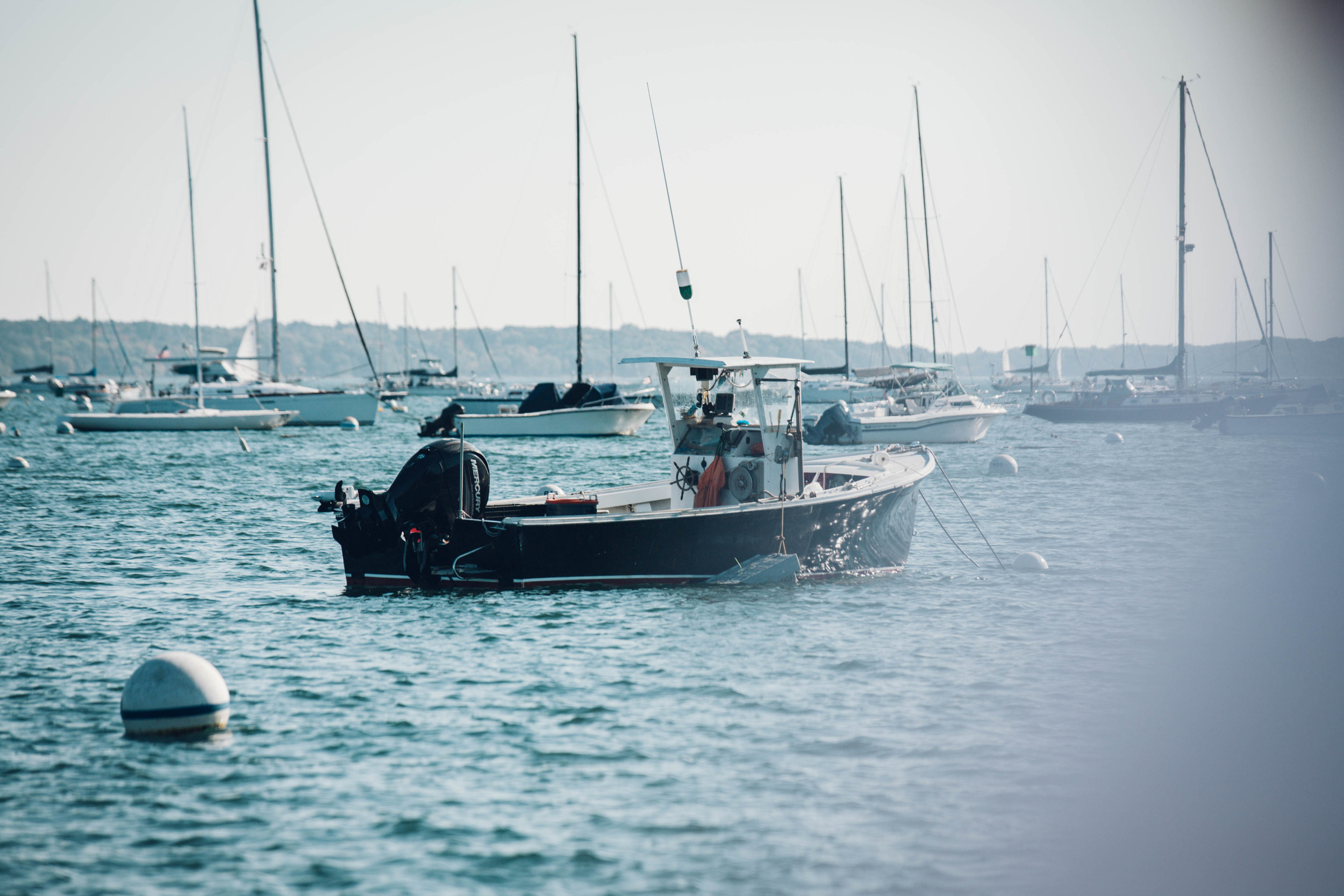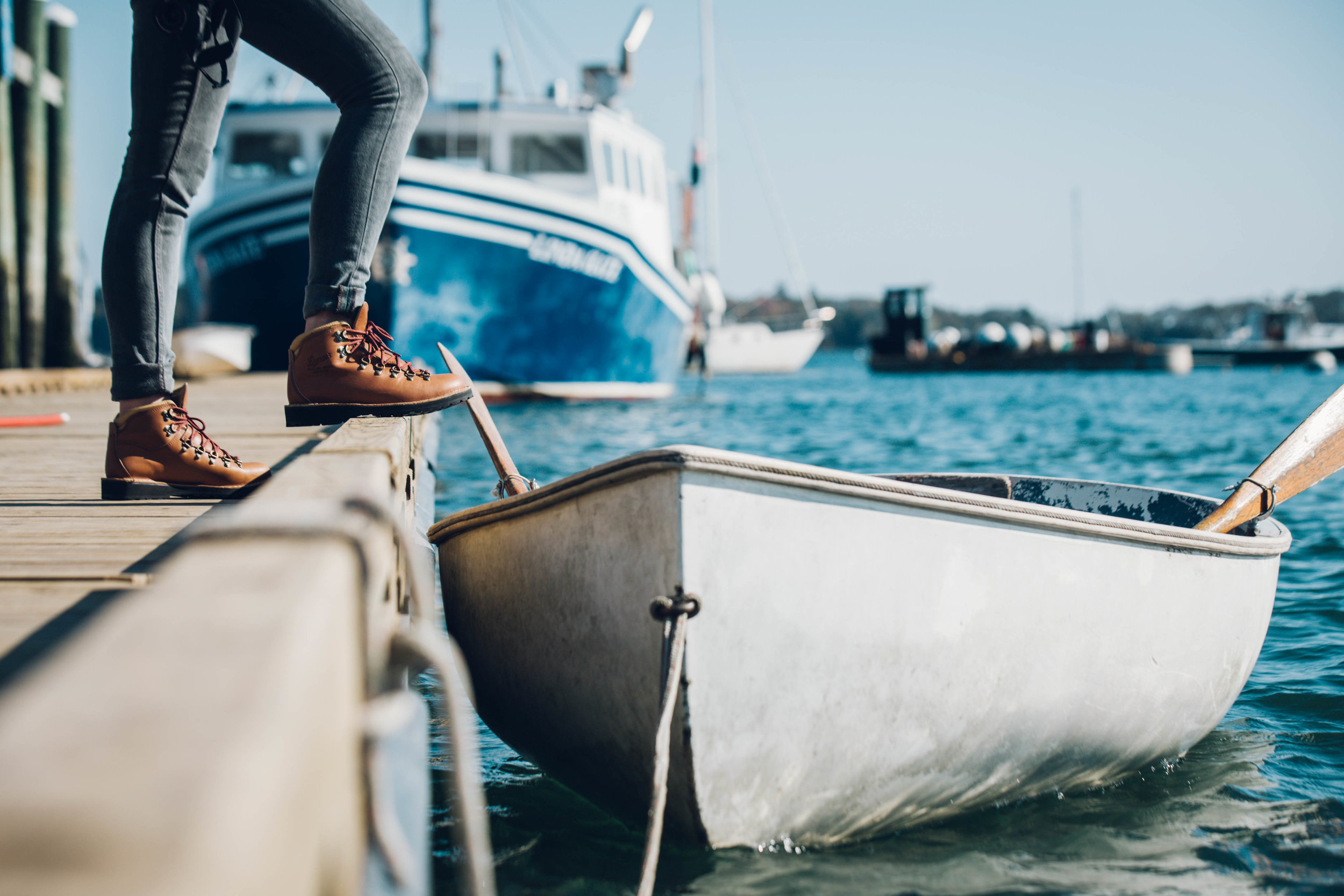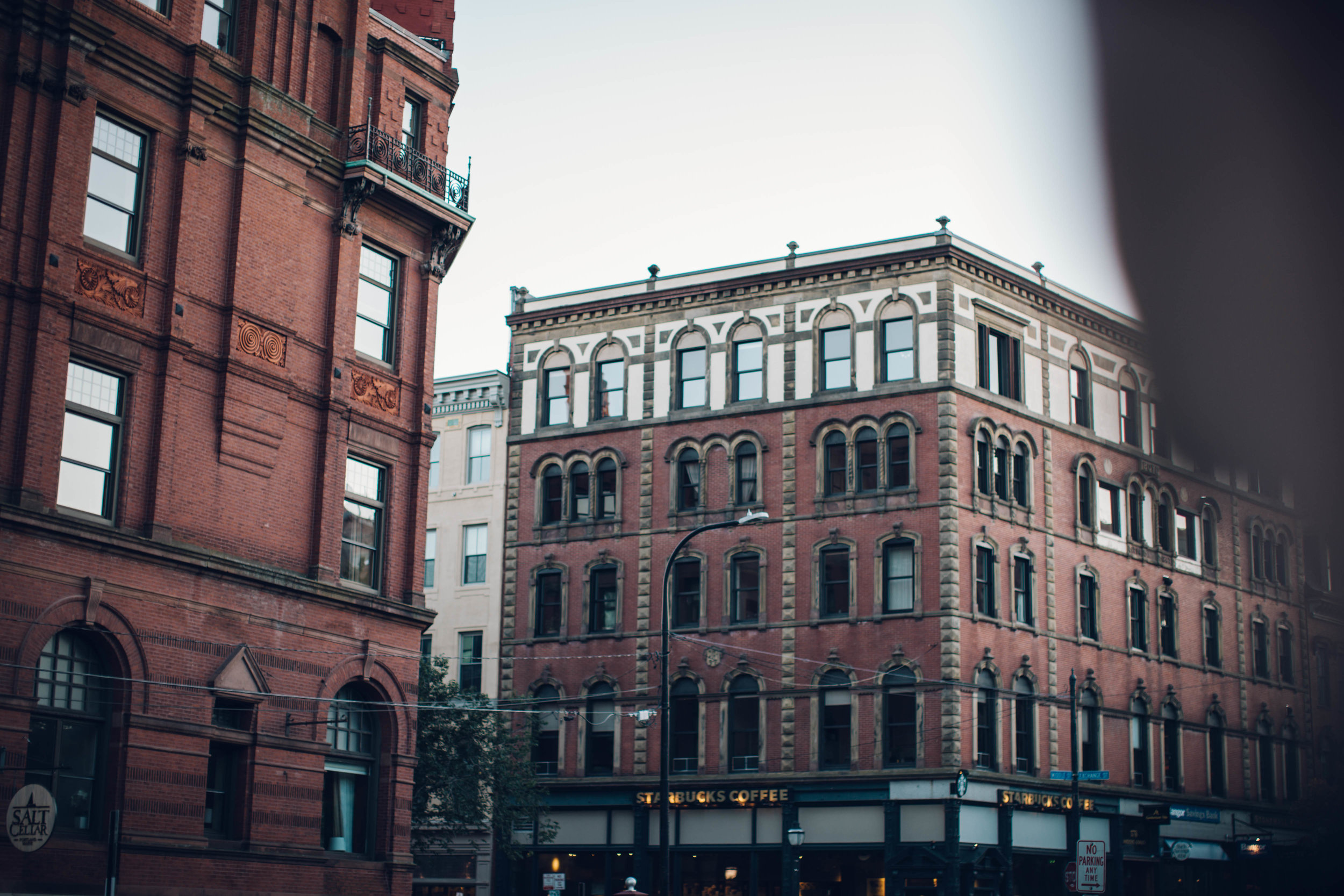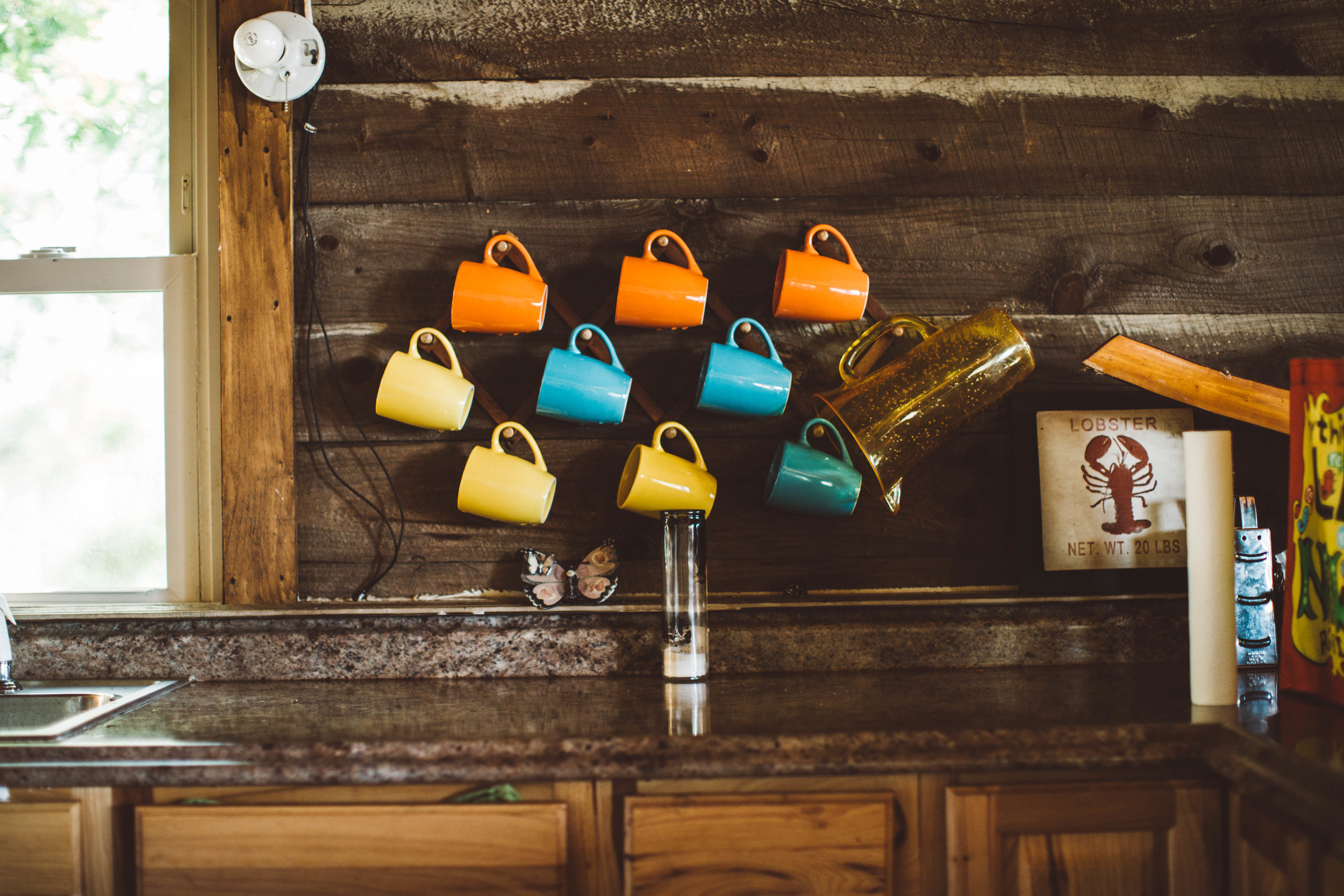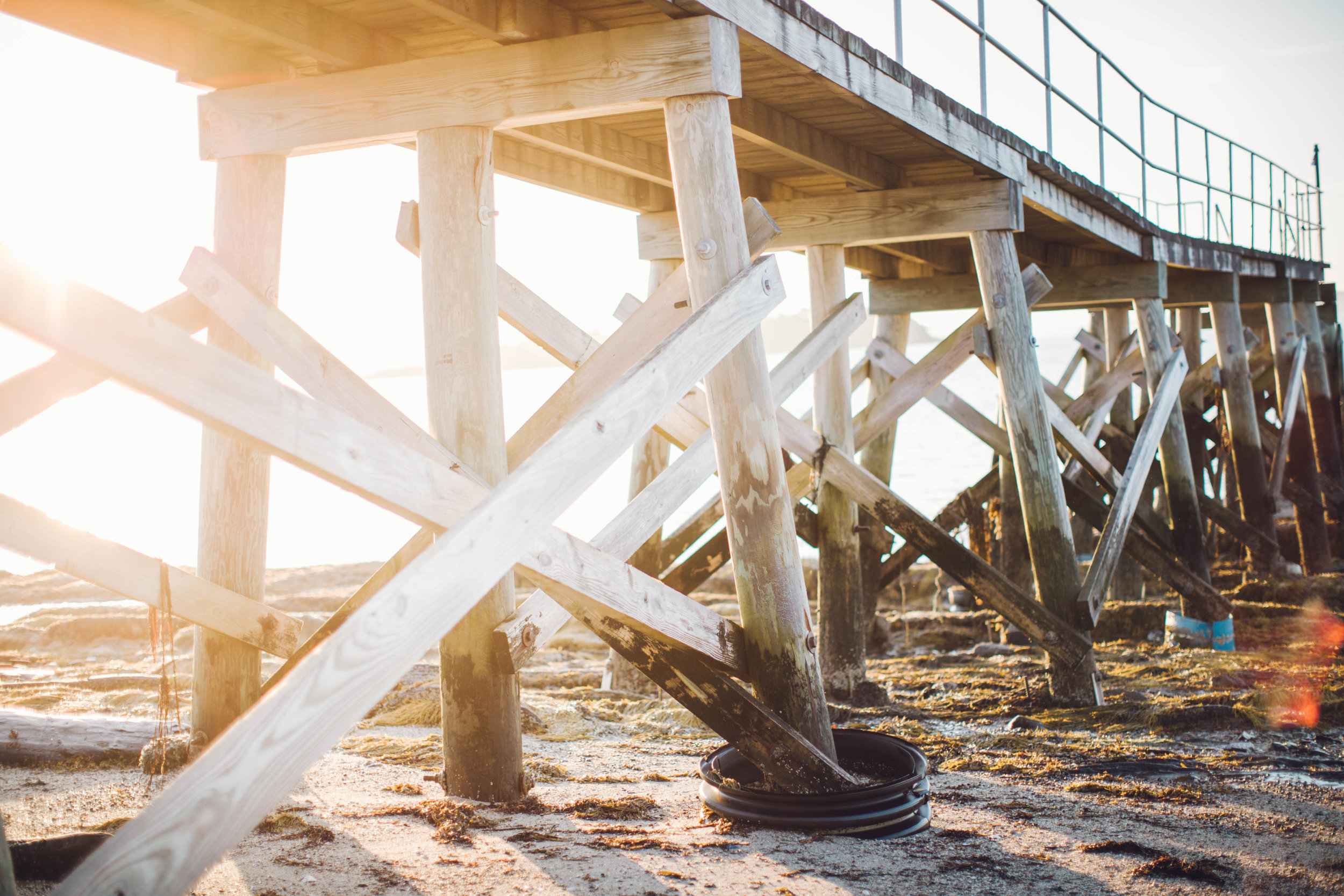Our friends Ransom and Casey, along with their dog, K2, spent the past year traveling around the U.S. and Mexico in their Westfalia and jumped at the chance to explore some familiar territory in a new way. We loaded up their van and our bikes — a new Honda Africa Twin and Honda CRF250 Rally — left the Iron & Air Supply Co. shop, and drove north along the Maine coast.
First settled in 1623, Portland, Maine’s early history is wild and tumultuous. Native Americans, the French, and the British all fought for control over the valuable peninsula in Casco Bay. Originally part of Massachusetts, Maine became a separate state in 1820 with Portland as its capital, preceding the current capital, Augusta. Portland is now Maine’s largest city, a major petroleum port for the northeastern U.S. and Canada, and has recently received national attention with its up-and-coming restaurant scene; Bon Appetit named Portland its “Restaurant City of the Year” for 2018, and chef Andrew Zimmern said, “I’m hard-pressed to think of a small town with as large of an impact on the country’s food scene.”
Before we let ourselves enjoy the port town’s culinary delights, we wanted to experience a more authentic, old-fashioned Maine feast. Lobstering in Maine is one of the oldest, continuously operating industries in America and has long been the backbone of Maine’s economy. Every year, Maine lobstermen harvest 100 million pounds of crusty creatures the same way their fathers did, and their fathers’ fathers before them. We rode to the town landing in Falmouth where we were met by a stout, rugged-looking man, Captain Jerry, and his sternman, Mike. Captain Jerry has pulled lobsters from these waters for 40 years, spending his evenings working on the sea — a stark contrast to his day job as an elementary school teacher. We boarded his boat Achilles and set out into Falmouth Harbor.
We watched and helped Captain Jerry haul traps out of the water one by one, each containing a lobster or two and an occasional rock crab. Each lobster was measured; those that were too small were tossed back into the ocean, and the rest went into the livewell. After a couple of hours Captain Jerry brought us to nearby Sturdivant Island, a tiny forested island with no roads and less than a dozen houses. Captain Jerry owns a cabin on the island, and we were to be his guests there for the night. Back in 1985, he bought six acres on the island for $3,000; his neighbor’s home is now on the market for $1.7 million. The timbers of the cabin were cut on the mainland, bundled together, and floated to the island, where Captain Jerry built the cabin himself. It’s simple and rustic, sleeps 10 people, and has limited power and running water — an ideal retreat.
Captain Jerry pulled out a huge cooking pot, fired up the propane stove, and began tossing in lobsters, a few crabs, some onions, potatoes, and corn-on-the-cob. “Put a whole stick of butter in a pot on top of the lobster pot. When the stick is fully melted, the lobsters are done,” Jerry told us. A half-hour later, we sat on the picnic table cracking into the lobsters, watching the sunset over the Portland skyline. Our conversation revolved around the dichotomy in front of us: In the shadow of a city known for its culinary aspirations, this delicious feast required no complex sauces or fancy cooking techniques. Just ocean-to-table and farm-to-table ingredients as fresh as could be, cooked in the simplest ways possible. After sundown, we shared beers by an open fire then walked down to the dock, where we were surprised to witness the glow of bioluminescence in the pitch-black high tide below us. The countless stars above and the glowing life in the water below echoed the duality we touched on in our dinner conversation — so similar, yet so wonderfully different.
After a restful night in the cabin we returned to the mainland, loaded our gear back onto our bikes and into the van, then headed into town to check into our plush, three-story brick Airbnb — a stark contrast to the previous night’s accommodations, though warm and welcoming just the same. We freshened up enough to shed the scent of our last dinner, but embraced the essence of campfire that remained as we headed out to sample some of mainland Portland’s famous cuisine.
We settled in at the Hunt + Alpine Club — the sister bar to the award-winning Little Giant restaurant — in the city’s Old Port. Tonight’s concoctions of Irish whiskey, mezcal, pineapple gomme, gin, lemon, pamplemousse, chartreuse, and cocchi americano replaced last night’s satisfying cans of lukewarm Coors Banquet Beer. A spread of cheeses, meats, fish, aquavit, bread, crackers, homemade pickles, and crudités contrasted with a meal we’d literally pulled from the ocean with our bare hands the night before. This night’s starry skies were blotted out by an ocean fog that rolled in, but the buzz of street lamps and glowing storefronts illuminated the way for us and this bustling city’s 70,000 inhabitants. We later made our way to BaoBao Dumpling House, and even later closed down a local pub that specializes in late-night burgers and craft beer before heading home satisfied, tired, and full — much like the night before, yet again, very different.
Our short trip was loaded with duality: from a country cabin to a swanky row house, from a primitive meal to gourmet dining, we adventured around a traditional port city that is now home to a very progressive culture. We’d like to believe that Asa Lovejoy would be proud of his hometown — and its western namesake — for what they have both become, and that Charles Danner would be proud to know that his boots could bridge such different worlds without missing a step. The many faces of Portland — between Maine and Oregon, the bustling city and a coastal retreat, and the contrasting lives that inhabit all of these places — exemplify what makes life interesting and unique; they are wonderfully different sides of the very same coin.
Learn more about Iron & Air | @ironandair

